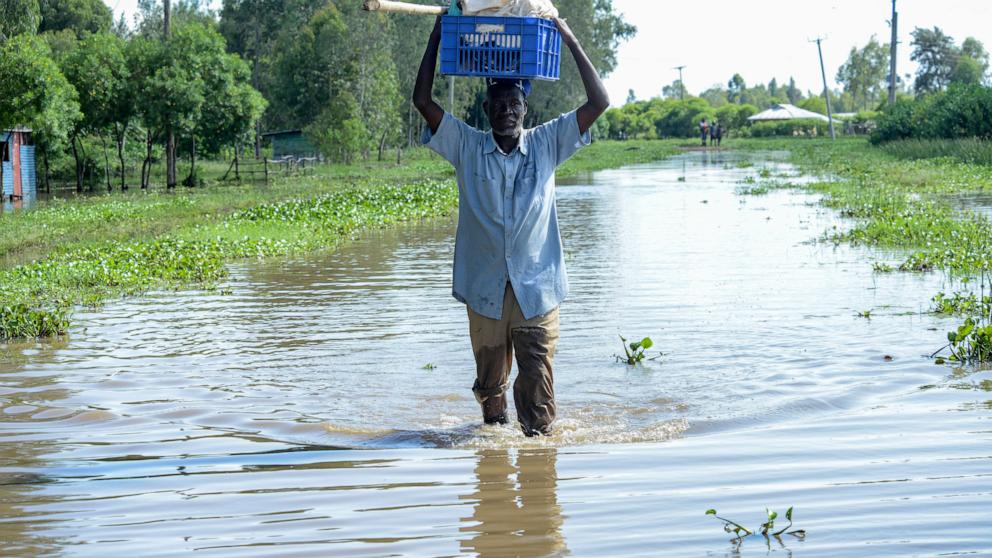Human Rights Watch accused Kenyan authorities of failing to adequately respond to ongoing flooding that has killed more than 170 people since the start of the rainy season.
NAIROBI, Kenya — Human Rights Watch on Thursday accused Kenyan authorities of failing to adequately respond to ongoing flooding that has killed more than 170 people since the start of the rainy season.
The New York-based human rights group said governments “have a human rights obligation to prevent foreseeable harm from climate change and extreme weather events and to protect people in the event of disaster.”
The Kenya Meteorological Department issued an early warning before the rainy season began, but President William Ruto only established a response committee on April 24. By then, the flood had killed nearly 100 people.
Kenya, like other parts of East Africa, is affected by flooding. More than 150,000 people have been evacuated and are living in dozens of camps.
Human rights groups said the government had failed to draw lessons from last year's rainy season, which killed hundreds of people.
Until earlier this year, the Bureau of Meteorology had warned that the country would experience increased rainfall due to El Nino, but Ruto said in October that the country had remained unaffected by the weather pattern.
The government announced at the time that at least 10 billion Kenyan shillings ($75 million) would be released to prepare a nationwide response. It is unclear how the funds were spent, and critics have accused the government of embezzlement.
People affected by ongoing flooding in Maimahiu in the country's west have accused the government of slow response. At least 45 people have been killed as rivers flooded and homes collapsed, with more than 80 people missing since Monday. The rubble has not yet been cleared to recover the buried bodies.
With more rain expected across the country into May, the government on Tuesday told people living in flood-prone areas to move or be forced to evacuate.


